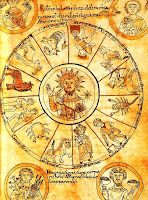
OK, so many creationists just don't get it - let me spell it out. The Flintstones was not a documentary.
First, let's get something straight. A scientific theory is a well supported explanation of natural phenomena, facts, and data that is has not been falsified, and best explains the data we have. Theories are the upper echelon of science. Theories are not wild-assed guesses, as some creationists like to pretend. Nor are theories simply problematic guesses trying to become laws. Laws and theories are quite distinct things in science and there isn't a hierarchy whereby ideas go along stages, with "law" being the last and best stage.
Also, science changes as new data becomes available. This is not a failing of science, but a strength. It shows a willingness to incorporate the best information we have in formulating the best explanations that we can.
Evolution is a theory. It is well supported by many independent lines of scientific inquiry (paleontology, biology, genetics, geology, etc.) We have many different independent lines of evidence that support it. Evolution is built on facts, many facts, and is the over-arching explanation of those facts. No other alternative "explanation" even comes close (and no, creationism and ID are not theories - they aren't even proper hypotheses). Evolution has been rigorously tested for over 150 years now and it is still weathering the test of time, even though it has made predictions that could have falsified it (like the chromosomal fusion of human chromosomes from our last common ancestor with apes that was predicted and found, for example).
Evolution, as an explanation, is (very simplified) that mutations to the genetic material of organisms provide for variation, which is then selected by nature for survival and the passing on of those genes.
All animals on the planet are just as evolved as we are. We are not more evolved than other animals. Evolution is happening still.
Evolution is not random. The variations that arise do have a random component, but selection is not a random process.
It does not mean that we should see giant flies with 20 wings, or dats (dog/cat crosses). It doesn't mean that we will grow another arm (not unless genetic material for another arm arises and is selected for over say the next 20 million years that is).
Now, why go through all this? It's because I'm constantly amazed at the amount of creationists who know just about nothing about evolution, but are dead sure it's wrong. They don't know what a theory is. They don't know how science works. They don't know how evolution works. They don't even understand the very, very simplistic overview that I just gave above.
But they do know that it all has to be wrong, wrong, wrong.
Do these creationists really think that either virtually all scientists are part of some atheistic conspiracy to dupe the public, or that virtually all scientists are stupid or blinded by atheism and that they, having done no research or any other lab work, somehow know more than the professionals? Any other options?



















